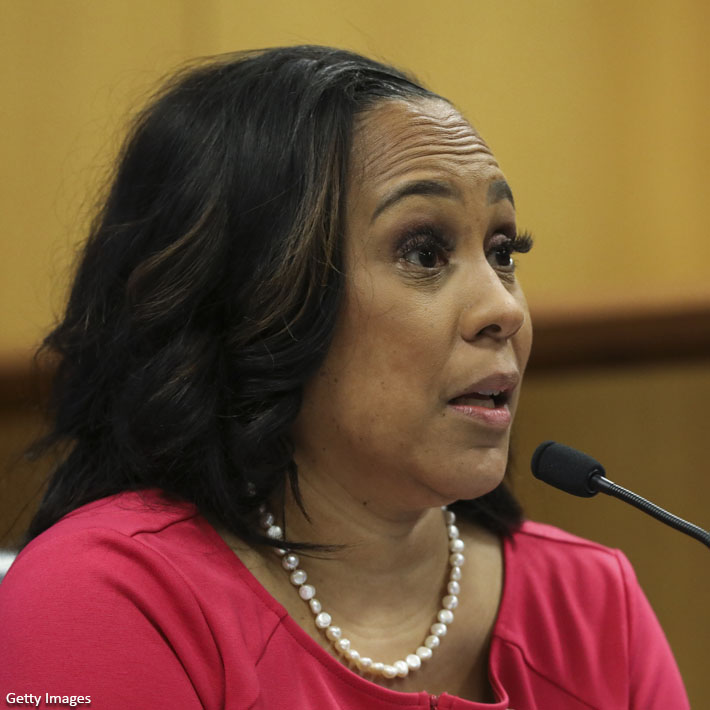A Georgia judge has dealt a major legal blow to Fulton County District Attorney Fani Willis, ordering her to turn over critical records related to her communications with Special Counsel Jack Smith. This ruling comes after Willis initially denied possessing such records, only to later admit their existence under legal pressure.
Judicial Watch Lawsuit Exposes Concealed Records
The ruling was issued by Fulton County Superior Court Judge Robert C.I. McBurney in response to a lawsuit filed by Judicial Watch, a government watchdog group demanding transparency regarding Willis’ possible coordination with Smith—a federal prosecutor aggressively pursuing legal action against former President Donald Trump.
Judicial Watch had formally requested:
✅ All documents and communications between Willis and Smith’s office.
✅ Any exchanges between Willis and the House January 6th Committee.
Willis had initially maintained that no such records existed. However, after losing a legal challenge, her office revealed that it did, in fact, possess 212 pages of relevant documents.
Judge’s Ruling Forces Transparency
Judge McBurney’s order compels Willis to submit these documents for court review, dismissing her claims that they should be shielded under attorney-client privilege and investigative exemptions.
Under the ruling, Willis must:
📌 Deliver all identified records to the court within five business days.
📌 Provide a sworn affidavit detailing:
- How her office conducted its document search.
- Who conducted the search and what platforms were examined.
- Whether personal or government-issued cell phones were checked.
Although McBurney stopped short of appointing a special master to oversee the review, he left open the possibility if additional discrepancies arise. If any records were improperly withheld, Willis must justify each exemption claim through an ex parte filing under seal.
A Series of Legal Setbacks for Fani Willis
This ruling adds to a growing list of legal troubles for Willis. In December 2024, the Georgia Court of Appeals disqualified her from the Trump case, citing an appearance of impropriety due to her personal relationship with Nathan Wade, a special prosecutor she appointed.
Although the court found no financial misconduct, it ruled that the relationship could erode public confidence in the impartiality of the prosecution. As a result, a new prosecutor had to be appointed, potentially delaying the case as Trump prepared to resume the presidency.
In response to these concerns, the Georgia Senate passed a bill on March 6, allowing defendants to seek reimbursement for legal fees if a prosecutor is disqualified for misconduct and their case is dismissed.
Beyond Trump: Controversy in Other Cases
Willis has also faced criticism for her handling of other high-profile cases, including the Young Slime Life (YSL) gang trial, which ended in December 2024. The trial, the longest in Georgia’s history, concluded with the acquittal of the final defendants on gang and murder charges, raising questions about the prosecution’s approach and use of resources.
Additionally, a Georgia state Senate committee investigating Willis’ conduct is now expanding its probe to include Stacey Abrams. Lawmakers aim to examine ethics violations related to Abrams’ 2018 gubernatorial campaign and her connections to various organizations.
What’s Next?
With mounting legal challenges and political scrutiny, Fani Willis finds herself under intense pressure. The outcome of this court-ordered records review could further impact her credibility and the future of the Trump case.
🚨 Stay tuned for updates as this legal battle unfolds.
